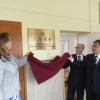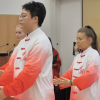Based on the Ideas of Two University Students in Pécs, the Virological Protection of the Country is Strengthened
2023
Feb
08
RoLink Biotechnology Ltd. and the University of Pécs have established a procedure and a device that can measure the immune response to the coronavirus. The invention not only contributes to the understanding of coronaviruses, but is also a basis for vaccine production and the measurement of immune response. Dr. Zoltán Birkner, head of the National Research, Development and Innovation Office, Professor Ferenc Jakab, Vice-Rector of the University of Pécs, head of the National Laboratory of Virology, as well as members of the startup that managed the idea, RoLink Biotechnology Ltd., Dr. Roland Hetényi and Dr. Dániel Hanna, held a press conference on the exceptional inventions on 7 February at the Szentágothai Research Center of the University of Pécs.
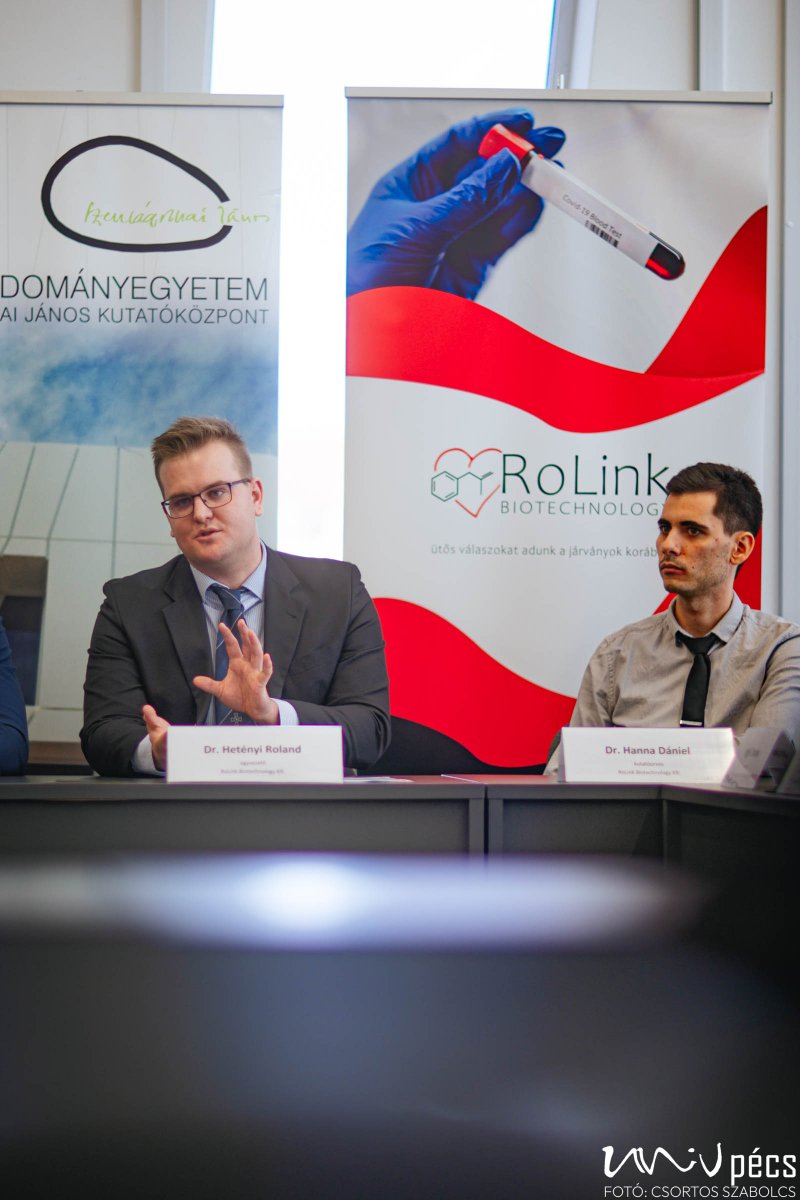 From contribution to startup
From contribution to startup
Two sixth-year medical students - Dr. Roland Hetényi and Dr. Dániel Hanna - were thinking about how they could contribute to the fight against the coronavirus epidemic in 2020. They had an idea that aimed at measuring the virus and the immune response to it. With this, they visited Dr. Ferenc Jakab, who has since become the head of the National Laboratory of Virology (VNL). The specialist saw the potential in the idea and involved the Ministry of Innovation and Technology into the process. The young people launched a startup built on their idea.
They worked on the project for two years, which required not only financial support, but also a network of contacts, access to measurements and machines. The result is a series of discoveries that can be classified as basic research, which are only millimeters away from social utilization.

Forward-looking inventions
"Over the two years, we conducted 150 experiments, used 125 blood samples, 25 scientists contributed to our project. Our goal was to build on the virus, but in a way that does not infect - there are few places where you can work with an active coronavirus. In February 2021, we were able to prove, together with VNL, proven through five types of procedures, that
the coronavirus can be inactivated in just 30 seconds. This alone has numerous options for application.
We created a UVC chamber and a device that we named ‘Picur’, for which we also filed a patent - we hope it will be a success story," - said Dr. Roland Hetényi. During the project, the researchers managed to inactivate the genetic material of the coronavirus with the help of UVC light without damaging the virus in its structure, so it was possible to study the processes triggered by the coronavirus in the human body. Specialists from the UP National Laboratory of Virology have proven the inactivation effect for both the Wuhan and delta variants. Dr. Roland Hetényi added: "In order to accurately measure the immune response induced by COVID-19, the coronavirus had to be produced as clearly as possible. This is not easy even for large vaccine manufacturers. It took nearly half a year of hard work, but we have managed to produce it with 96% purity in 30 minutes.
The inactivated, purified virus could be a globally relevant product"
- underlined Dr. Roland Hetényi, who also talked about the fact that the technology of detecting the immune response to the virus has also been improved and innovated - this branch of the project is also being further developed with VNL. Their goal is no less, than to further develop the virological defense capabilities of Hungary.
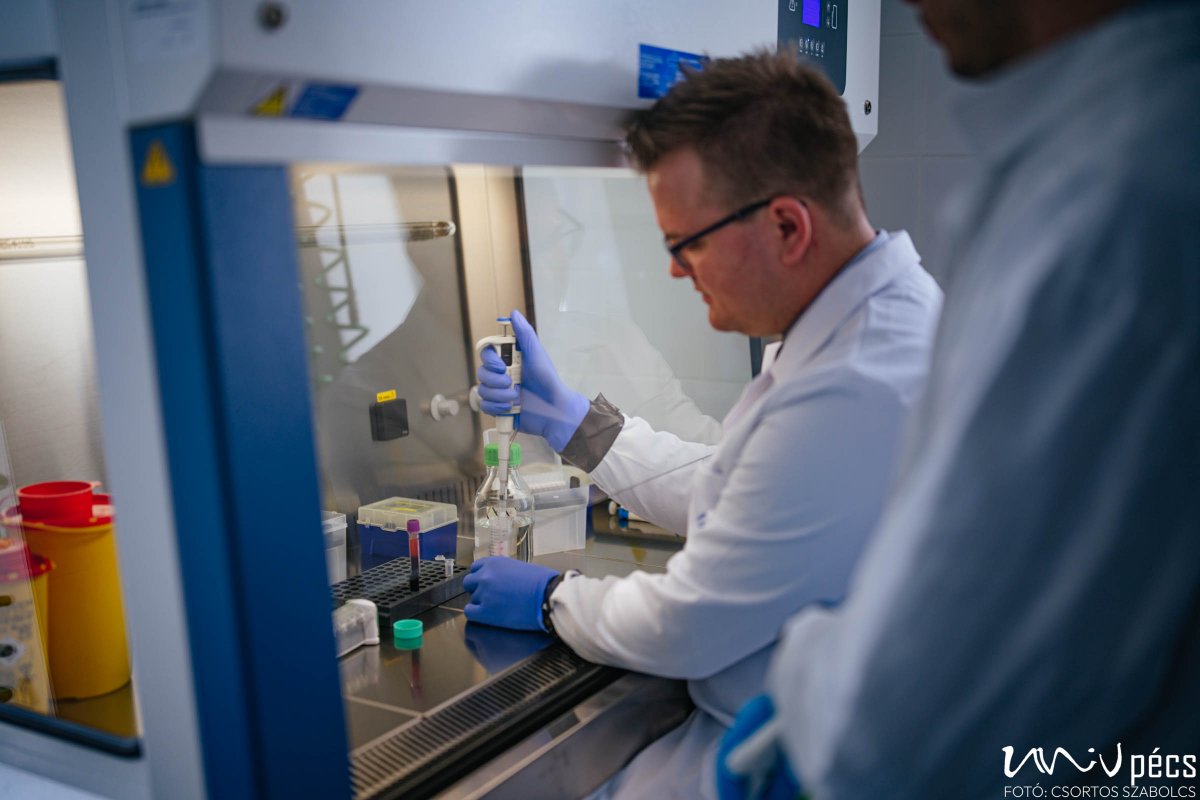
"This is a major step forward in covid research today, but it can be applied to more pathogens in the future, so we can more easily prepare for any new infectious diseases that are unfortunately likely to affect the population,"
emphasized Ferenc Jakab.
Research for the benefit of society
"The government revisited the field of R&D in 2018 and realised that there were no significant collaborations between the mid-performing academic and industrial sectors. We have defined responsibilities and needs, we have redefined institutions, we have doubled the resources for innovation. That is when covid came," - said Dr. Zoltán Birkner, head of the National Research, Development and Innovation Office, and then stated: "What we had to initiate from above in Hungary started on its own as a result of the epidemic. In one month, 100 applications were received to offer a solution for different problem areas of covid. Between March 2020 and February 2021, we spent 20 billion HUF on the cooperation of companies with the academic field. Covid has brought with it what we wanted to achieve: the cooperation of the two sectors." The joint work of UP and RoLink Biotechnology Ltd. is proof of the effective cooperation between the university ecosystem and the biotechnology industry, which can be considered a successful model of domestic research and innovation - this is why the head of the National Research, Development and Innovation Office visited the project closing event.
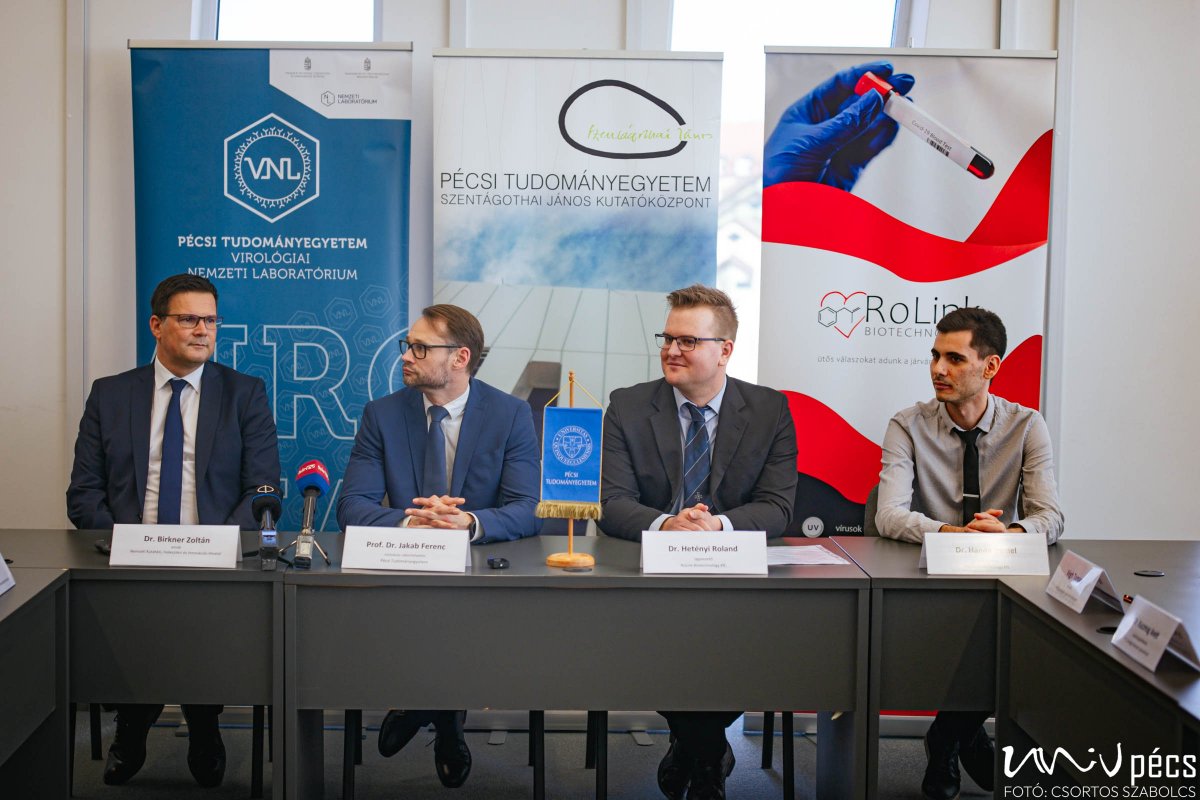
"Covid has caused a lot of trouble and suffering, but just as much good has happened because of it - the scientific world has been invigorated in this field, researchers have come together and the opportunity has opened up for corporate collaborations in the name of economic/ social utilization, serving the common good. Working with RoLink Biotechnology Ltd. is like that. The continuous strengthening of company cooperations will be important in the future as well. The goal should be to
take the knowledge outside the laboratory and make practical use of it"
said Dr. Ferenc Jakab.
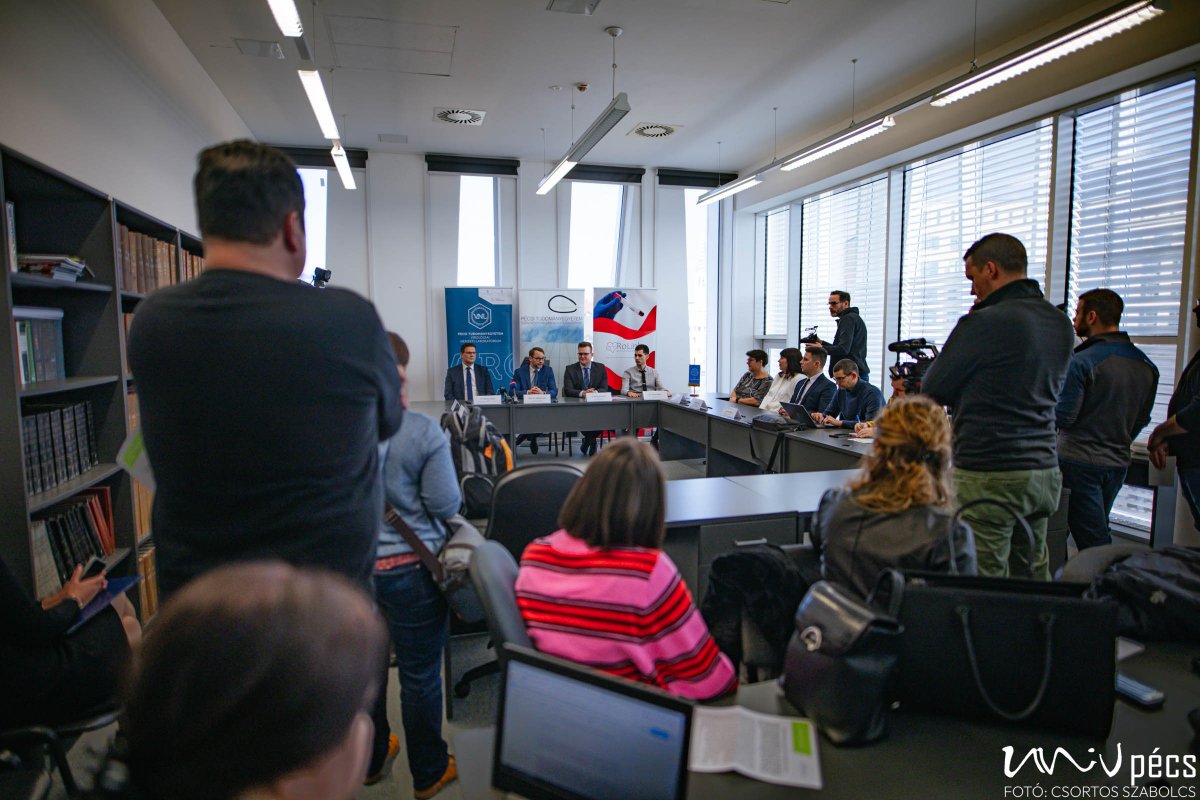
The project was implemented within the framework of the tender "COVID-19 Diagnostics and Therapy – Unified Platform Approach" 2020-2.1.1-ED-2020-00100, with the support of the National Research, Development and Innovation Fund of the Ministry of Innovation and Technology and the Ministry of Culture and Innovation, using HUF 127 million.
- Log in to post comments
University of Pécs | Chancellery | IT Directorate | Portal group - 2020.
